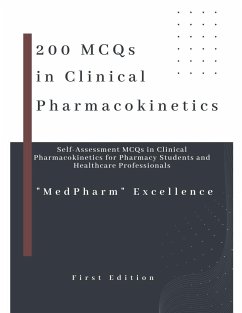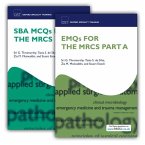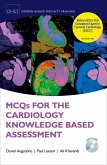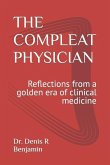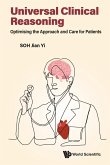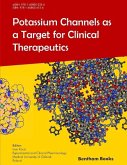This book contains 200 comprehensive multiple-choice questions in clinical pharmacokinetics, aiding pharmacy students and healthcare professionals in assessing their understanding of key concepts and principles in the field. Pharmacokinetics is the branch of pharmacology concerned with studying how the body interacts with the administered drugs for the entire duration of exposure, including absorption, distribution, metabolism, and elimination (ADME). Clinical pharmacokinetics is the science that describes the absorption, distribution, metabolism, and elimination of drugs in patients requiring drug therapy. Clinical pharmacokinetics is concerned with applying pharmacokinetic principles to the safe and effective therapeutic management of drugs in individual patients.

